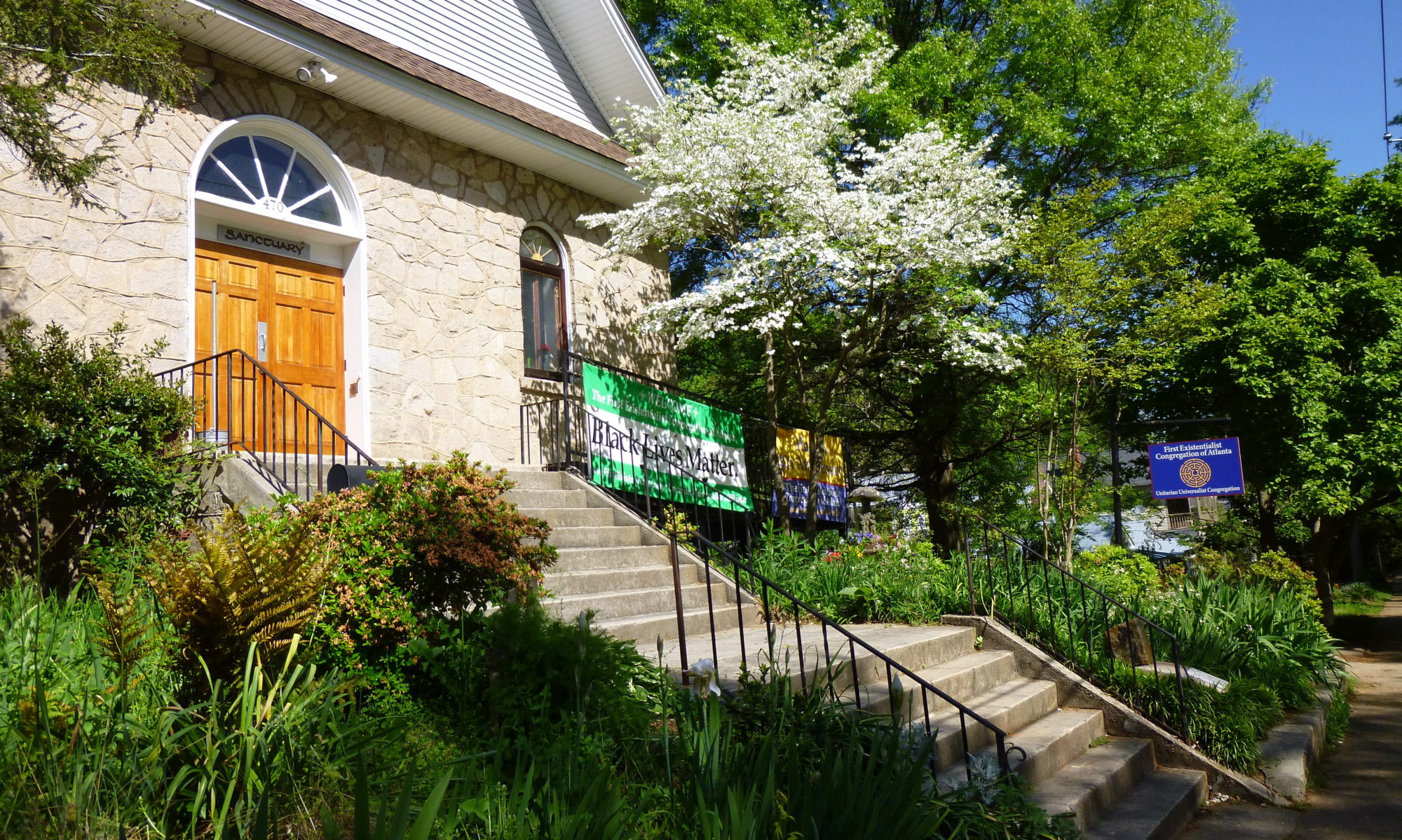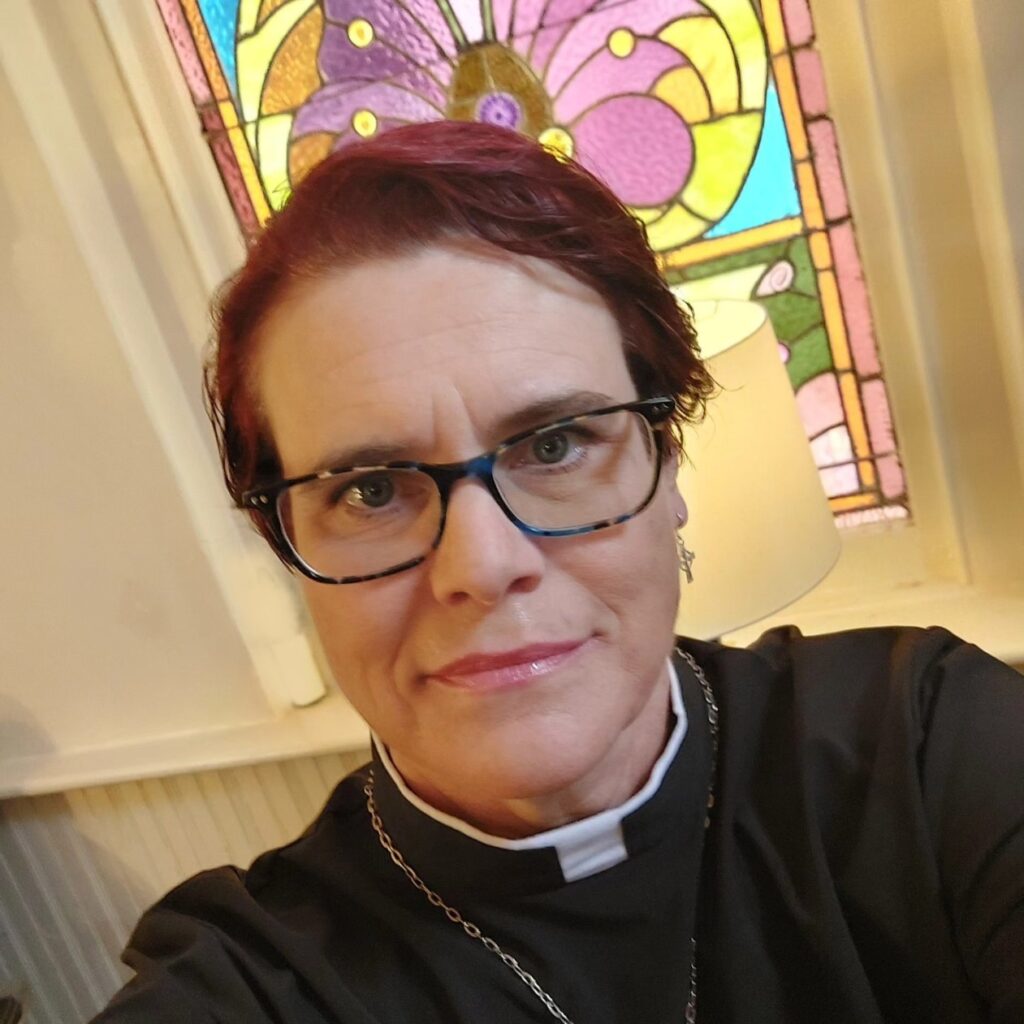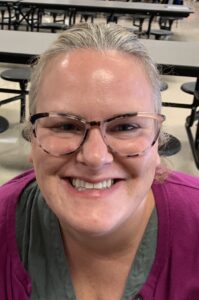“Reflections on Fatherhood”

Facilitator: Wade Marbaugh
Musician: Craig Rafuse


First Existentialist Congregation
An independent member of the Unitarian Universalist Association

Facilitator: Wade Marbaugh
Musician: Craig Rafuse

Resilience, natural strategies, and community are part of why we’re still here.
Facilitator: Cindy Lou Who
Musician: Alan Brown

Dr. Arri Eisen has had the privilege of teaching a diversity of students – Emory undergraduates, Tibetan Buddhist monks and nuns, US Air Force cadets, MDs and PhDs – across two centuries and many disciplines, from basic science to the humanities, engaging leaders such as Jimmy Carter and the Dalai Lama. He will offer some stories and reflections from these experiences that have convinced him there is hope.
Facilitator: Patton White
Musician: Mick Kinney

In this two-person discussion/debate, Leon will take the agnostic/atheist position: “As god disappeared, the universe grew more awesome and fascinating and my life became more relaxed, peaceful, and loving.” Rick will argue his heathen perspective: “God is. We have choices.” It is a matter of semantics.
Facilitator: Libby Ware
Musician: Jean Heinrich and the E-Chorus

How did we reach a point where our ways of life and livelihood threaten irreversible damage to the biosphere we depend on to survive? We got here by forgetting what indigenous people have always understood: matter and spirit are one, and life on the material plane is a spiritual path. Our best guide on this path is the Earth itself and its community of species. If we walk or sit in any place that remains wild, listening quietly, we can begin to hear it speaking to us from inside, from the depths of spirit, where we too remain wild, and enter a personal relationship with the world that nurtures and sustains us.
Facilitator: Marsha Mitchiner
Musician: William Chelton
“An Inside Look at Motherhood”

Three members of First Existentialist Congregation tell about their experiences as mothers.
Facilitator: Sara Drew
Musician: Jean Heinrich
Hunger and poverty are considered “wicked problems” by social scientists. How might we journey in our understanding of hunger and poverty and be moved to meaningful action?

Facilitator: Wade Marbaugh
Musician: Snake Oil Medicine Show Band with Craig Rafuse
“60% Water”

In honor of Earth Day we’ll take a deeper look at water and what it means to us: our bodies, our spirits, our communities, and our planet.
Facilitator: Charlene Ball
Musician: William Chelton
“Sacred Violence”

Paul and Terra will describe their journey of “Sacred Violence”—the direct production of basic needs in order to minimize participation in the violent economic systems that support our lives. For the last two decades, they have partially liberated themselves from these systems, and they will discuss the limits and implications of that liberation.
Facilitator: Cindy Lou Who
Musician: E-Band
“A Zen Interpretation of Science and Religion”

Keiji Nishitani was one of the most brilliant (and challenging) representatives of the “Kyoto School,” a Japanese philosophical lineage that sought a creative fusion of European philosophy (especially existentialism) with the Zen Buddhist philosophy of emptiness. Nishitani, who studied under both Martin Heidegger and Kyoto School founder Kitaro Nishida, recognized that the Modern West could not produce an adequate solution to the conflict between science and religion. What he offered in their place was, in a manner of speaking, a Zen transformation of both.
Facilitator: D. Patton White
Musician: Mick Kinney